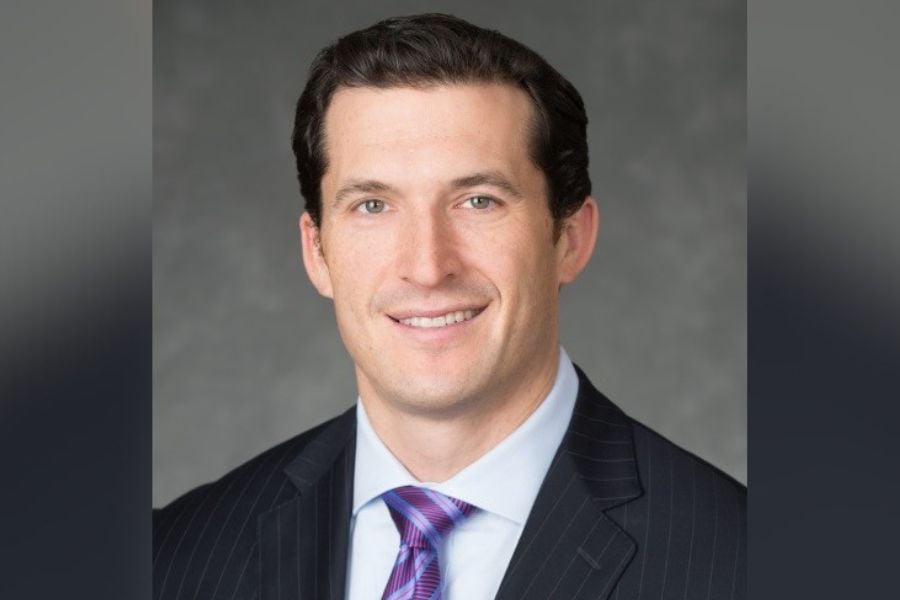

Morgan Stanley’s new head of wealth management, Jed Finn, sees four lanes to driving growth in the business: deepening relationships with existing clients, as well as winning new ones; pushing more client assets into advisory accounts that charge annual fees; selling more alternative investments, which can be pricey and carry risk; and driving clients to look to the firm for banking solutions, like checking accounts.
Finn, who took over as head of the firm’s 15,000 brokers in January, outlined his plans to boost the unit’s profit margins to 30 percent last month at the Bank of America Securities Financial Services conference. That compares to the 25 percent profit the unit saw last year.
In his discussion, he moved back and forth from the broad to the specific, including details about listening to financial advisors’ phone calls with clients who have been referred from another part of the company, such as its online broker ETrade.
“Now we know when we’re making a referral to a financial advisor, our top quartile is closing one out of every three,” he said. “There’s a lot of data to support that. In fact, there are some advisors who are north of 50 percent. I mean, it’s unbelievable. I’ve listened to the phone calls because I didn’t believe it, and they’re just that good.”
The 30 percent profit goal Finn cited matches the target that James Gorman, the chairman and former CEO of the firm, first set for Morgan Stanley as a whole a couple of years ago.
The company has seen increasing revenue and income from wealth management over the past decade. When Gorman was co-president of Morgan Stanley in 2010, before taking the reins as CEO from John Mack, the portion of the bank’s pretax profit that came from its wealth and investment management group was about 26 percent. Last year, that portion was up to 52 percent.
Gorman also paved the way for growth at Morgan Stanley’s wealth management business through a series of acquisitions starting five years ago: the 2019 purchase of Solium Capital, a stock plan business that focused on technology startups, for $900 million; the $13 billion acquisition of discount broker ETrade a year later; and the 2021 deal for Eaton Vance, a leading active manager of mutual funds, including the Calvert and Parametric brands.
Such a target comes at a price. Morgan Stanley said last month it was planning to eliminate several hundred jobs, the first such move under new CEO Ted Pick, who replaced Gorman at the start of the year. The cuts will affect less than 1 percent of employees in the wealth management business, which has about 40,000 workers and is the firm’s largest unit, according to Bloomberg News.
In his presentation, Finn likened the wealth management business at Morgan Stanley to a funnel, moving clients from platforms like ETrade to working with a financial advisor and using fee-based or advisory products with a greater number of clients.
The goal is to “accelerate the path to advice,” he said. “I think people who follow us know that we talked about that as the funnel. We start with winning new clients, who bring in net new assets that we migrate into advisory relationships, which generates that recurring fee-based revenue.”
That can be lucrative. “We’ve averaged $100 billion in fee-based flows over the last couple of years at a blended 60 basis points [return on assets] net of financial advisor compensation,” Finn said. “That’s a couple of hundred million in [profit before tax] each year.”
About 50 percent of Morgan Stanley’s $3.1 trillion of client assets that financial advisors work with are currently in fee-based accounts and products, according to the company. That could reach 60 percent to 70 percent over time, Finn said.
“There is still a significant opportunity within our own book to continue to migrate assets into advisory accounts,” he noted.
The firm’s wealth management business is also going to encourage its financial advisors to pursue banking relationships with clients, a tactic that its competitor Merrill Lynch has also focused on, with “lending penetration” and its “checking offering” the focus.
Financial advisors selling and recommending more alternative investments will round out the firm’s strategy, Finn said. “We’re going to drive transactional revenue through more adoption of our alts platform and our capital markets business,” he said. “Those together, we think, are going to do another couple of hundred million [profit before tax], let’s just say.
One plaintiff’s attorney noted that since Charles Schwab cut commissions to zero on stock trades and other transactions a few years ago, big firms have been looking to create other revenue streams to replace lost commission dollars.
“No brokerage firm can make money any more selling stock,” said Scott Silver, the attorney. “That’s why they’ve turned to products like alternative investments and annuities. Understanding what the fees are for those types of products requires a PhD. The message from the firm to the client is to use alternative investments and annuities to reduce risk, but first try to understand the fees and what you’re paying for these things.”
Meanwhile, Morgan Stanley continues to focus on technology for its financial advisors, including rolling out artificial intelligence functions, Finn said.
“AIMS Plus is just a chatbot for Morgan Stanley employees, but with the appropriate controls around it,” he said. “So our advisors will be able to use it to send emails, do research, create newsletters, all of the things that you can imagine.”

Former Northwestern Mutual advisors join firm for independence.

Executives from LPL Financial, Cresset Partners hired for key roles.

Geopolitical tension has been managed well by the markets.

December cut is still a possiblity.

Canada, China among nations to react to president-elect's comments.
Streamline your outreach with Aidentified's AI-driven solutions
This season’s market volatility: Positioning for rate relief, income growth and the AI rebound
